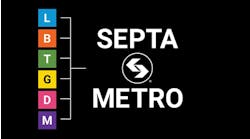Moving his family cross-country, dealing with a looming Metra deficit and possible fare hikes, coping with fallout from his disgraced predecessor, restoring morale and public confidence, handling terrorist threats, keeping trains running on time and house-hunting.
Alex Clifford can't multi-task fast enough, but he's trying. Metra's new chief executive officer is at 100 days since his hiring Feb. 1.
One of Clifford's greatest challenges is eliminating red ink resulting from skyrocketing diesel fuel costs.
"If fuel continues at the rate it is right now, we'll be $24 million over budget at the end of the year," said Clifford, a former top executive with the Los Angeles County Metropolitan Transportation Authority.
On Friday, he's expected to ask the Metra board of directors to allow a special meeting to talk over the short-term budget crisis. The agency also has a structural budget dilemma. "For many years, we've been using capital money to fund the operating side. You can't keep doing that," Clifford said, adding that capital dollars are needed to maintain and repair the rail system.
Possible fare hikes, service reductions and internal cuts are all on the table, he said. "Anything I bring to the board will be a combination of things."
But if the agency did decide to raise fares, it does so at a time of public skepticism after revelations former CEO Phil Pagano misspent transportation funds to enrich his salary and those of a favored few and allowed other irregularities, such as rehiring people who had committed crimes, failing to file federal paperwork that's resulted in a $90,000 fine, and running up pricey expense accounts.
Pagano killed himself a year ago amid an investigation that showed he'd pilfered at least $475,000 in unauthorized vacation payouts.
Clifford, a former Marine, said he was shocked at the findings and Pagano's lavish use of the company credit card.
The Daily Herald scrutinized Pagano's credit card use in 2010 and found excesses such as $654 for a steakhouse dinner, more than $2,200 on florist bills ostensibly for funeral arrangements, a $3,000 legislative reception in Springfield and $193 at a golf course in Wisconsin, which he later repaid after it was questioned.
"It was horrible stuff. It was sickening," Clifford said, citing "upgrading tickets from standard coach to first class," and pricey dinners which probably included alcohol. "You cannot charge the public for your alcohol consumption."
Asked if any more skeletons are expected to tumble out of the closet, Clifford said: "I just don't know what is around the corner as we continue to dig deep into this organization. I can't say that we've found everything."
The Metra board has instituted some reforms like hiring an inspector general and adopting whistle-blower and anti-nepotism policies since the scandal.
Clifford said he's tightened controls over travel, so that a procurement department administrator books flights and hotels not employees. "If a (conference) hotel is $400 a room a night but up the street it's $200 a night, there's nothing wrong with employees walking up the street. We will not just let employees default to whatever hotel they want."
Clifford also changed the policy on using cabs. Employees are required to document taxi use and walk when it's a reasonable distance. "Before I got here, the agency just paid the bill," he said.
Personally, he's refused a company credit card.
After revelations a former executive tried to shake down producers of the movie "Source Code," filmed using Metra property, Clifford said he's warned employees about ethics violations and is reaching out to Los Angeles and New York transit agencies for their policies on dealing with production companies.
He also let a purchase option expire on a controversial property near McHenry County College that Pagano had backed for a station, saying the plan needs more study.
Previously, Clifford handled high-speed rail initiatives for the Los Angeles transportation authority. When it comes to megaprojects here, he wouldn't commit to a particular priority, instead saying the agency needs a strategic plan that spells out what's needed in order of importance.
The STAR line, a proposed suburb-to-suburb rail service; expansions on the SouthEast and Union Pacific Northwest lines; and upgrades on the Union Pacific West Line will be included in the plan, he said. Clifford also promised to hold hearings across the six-county area to see what riders think about Metra's future.
In the short term, Clifford said the agency has beefed up security after revelations following Osama bin Laden's death that commuter rail lines could be a terrorist target.
The agency also is evaluating bids to install Wi-Fi on cars, working to reduce pollution from diesel engines, and looking at a universal fare card with the CTA and Pace.
Metra, unlike the other agencies, is an open system where passengers can walk on trains without paying first and it has a distance-based fee system. But despite those differences, the universal fare card is a high priority, Clifford said.
He also promised an announcement soon on quiet cars where riders cannot use cellphones. A test program on the Rock Island line has been popular.
Since starting at Metra, Clifford's met with numerous community and transit leaders and employees.
"I'm a CEO who likes to be seen out on the lines," he said. "I'm trying to give folks an assurance I'm different from the previous administration and it's a new day.
"The overwhelming majority of people in this company are good people. They lived in a suppressed environment where an autocratic leader had to have everything run through him and control the flow of knowledge."
As a result, Metra has fallen behind and "they're champing at the bit to move this agency forward," he said.
Copyright 2008 LexisNexis, a division of Reed Elsevier Inc. All rights reserved.
Terms and Conditions | Privacy Policy

